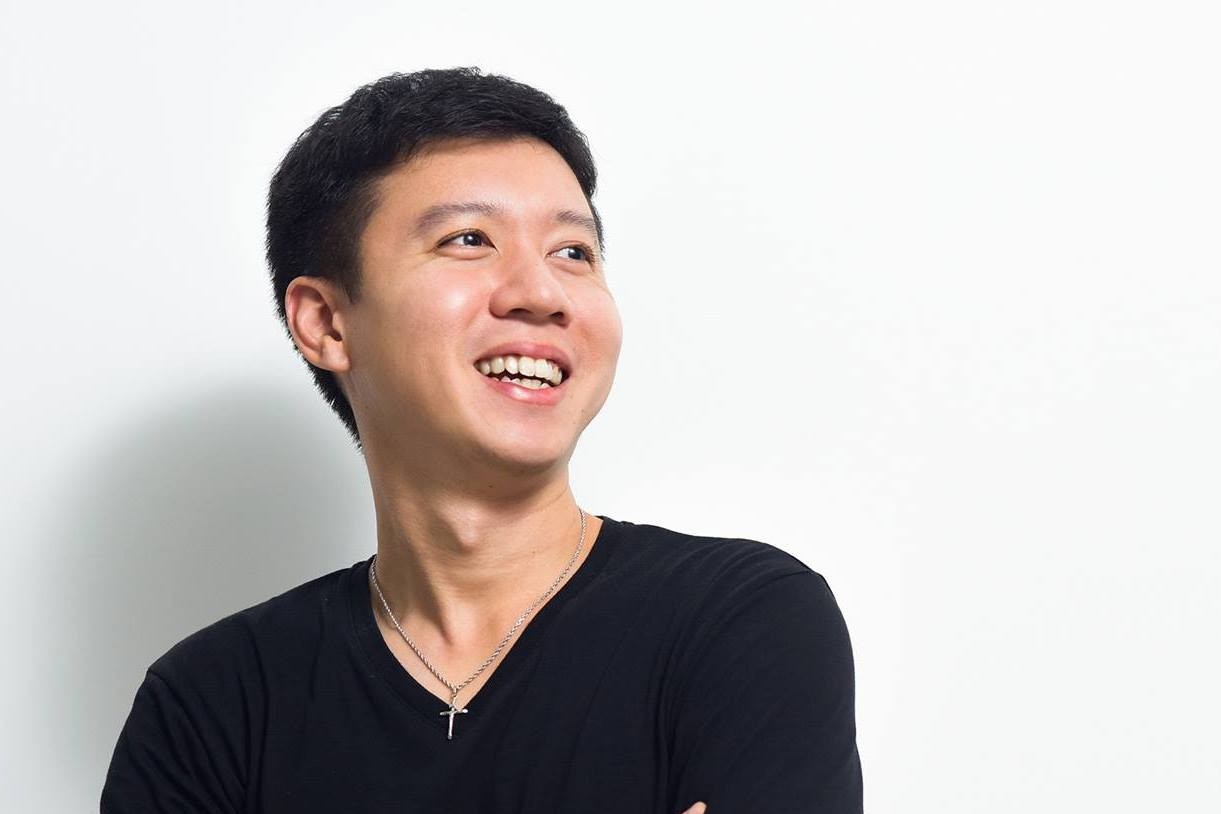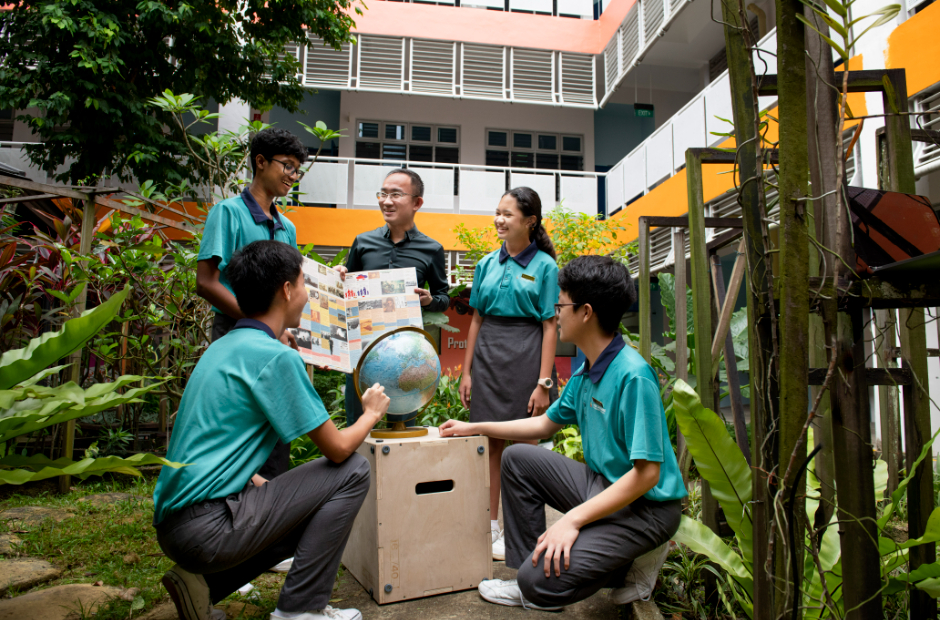History Comes Alive at Fuhua Secondary School
17 May 2012
Students had the opportunity to research and view historical photographs from their interviewees.
Studying history is much more than agonising over names and dates in textbooks, as many students of Fuhua Secondary School have discovered. Since 2010, the school has had several classes of Secondary 2 students take on the roles of oral history archivists as part of a project work assignment. Armed with background reading material and guidelines on conducting oral history interviews, these students have set out to interview people aged 50 and above about life during the Japanese Occupation, and how Singapore has changed through the years.
The project required students to deliver a presentation and interview transcripts; they also picked up skills such as translation, video editing and subtitling. This process helped them to appreciate the complex process of presenting history. As Phua Zheng Xuan, now in Sec 3, shares, “One of my team members put in a lot of work translating the interview from Mandarin to English. It was not easy!”
The Oral History Project was started by history teachers Mdm Jensrani Thangavel and Mdm Revathy Prem. Through a survey with their students, they learned that students were tired of making posters and brochures for projects. Having had an enriching experience conducting interviews for the Oral History Centre (part of the National Heritage Board) when she was younger, Mdm Thangavel decided to introduce this methodology to the students. “We thought that doing oral history would be a meaningful and relevant way to teach the history of Singapore to our Sec 2 students.”
Some Fuhua Secondary School history students with their oral history interviewee.
Oral history in the 21st century
In the process, the students get to learn much more than just the stories recounted by the interviewees. Sec 3 student Rusyda bte Aris wrote in her reflection notes last year, “The process of finding information online, in libraries and other sources is like seeking buried treasure.” For Cao Han Jie, now also in Sec 3, he learned more about the complexities of conducting oral history interviews. “The process of interviewing was an interesting one as I got to learn outside the textbook,” he recalls. “I realised that how a question is asked is really important, as it ultimately has an impact on the answer given by the interviewee.”
History and Music teacher Ms Michelle Yap appreciates the effort her young archivists put in to complete their project. “It was a tough process for them, but they learnt a lot about historical imagination and empathy. They also picked up communication skills and 21st-century skills especially in the use of technology,” she observes. Many students used their mobile phones to record the interviews on video and those who were more technologically savvy edited the videos while others worked on the subtitles. These videos were then integrated with their presentations .
Sec 3 student Lim Wan Qing, who conducted her oral history interview last year, also learned first-hand the perils of relying on technology for the interview. “My phone was damaged after the first recording. Hence I had to find another person and do the interview all over again. But I really enjoyed doing the project!” she concludes.
Students presented their project discoveries to their classmates, inspiring a deeper connection to Singapore and its past.
Connecting with the past
Despite the hiccups, the students came shining through and realised the relevance of history and the importance of teamwork. Brena Tan, now in Sec 3, says, “This project made me realise that history is not something dead, it is very much alive. After we did this project, the facts were a lot easier to absorb!” Her schoolmate, Issac Ko, feels that the project helped him to develop a more inquiring mind. “The project was about giving different perspectives. This doesn’t only apply in history. For anything we learn about, we can always find out more about it,” he asserts.
The students had also reflected on what the interviewees shared with them, be it the loss of lives during the Japanese Occupation or the mundane aspects of everyday life in Singapore in previous decades. Mdm Thangavel is especially proud of her students’ sense of self-motivation and says, “Although this project does not contribute towards their final grades, they all completed their projects well amidst juggling different activities and revising for their exams.”
No doubt the authenticity of interviewing real people for their experiences contributed to the students’ enthusiasm. As Issac put it, “We got to interview people about something that really happened – it was a rare opportunity!” Zheng Xuan, whose group interviewed the school gardener, summed up the experience, “We really enjoyed the interview process, and some of our interviewees had such interesting experiences to share!”




.jpg)
